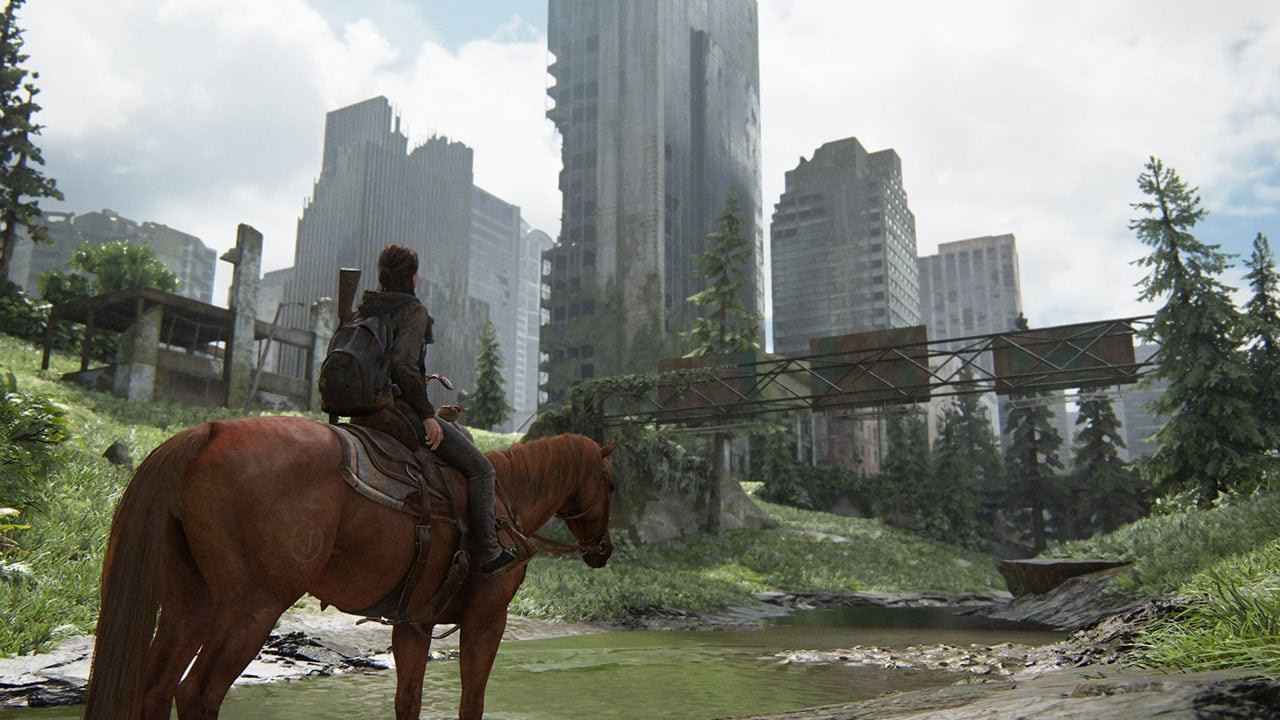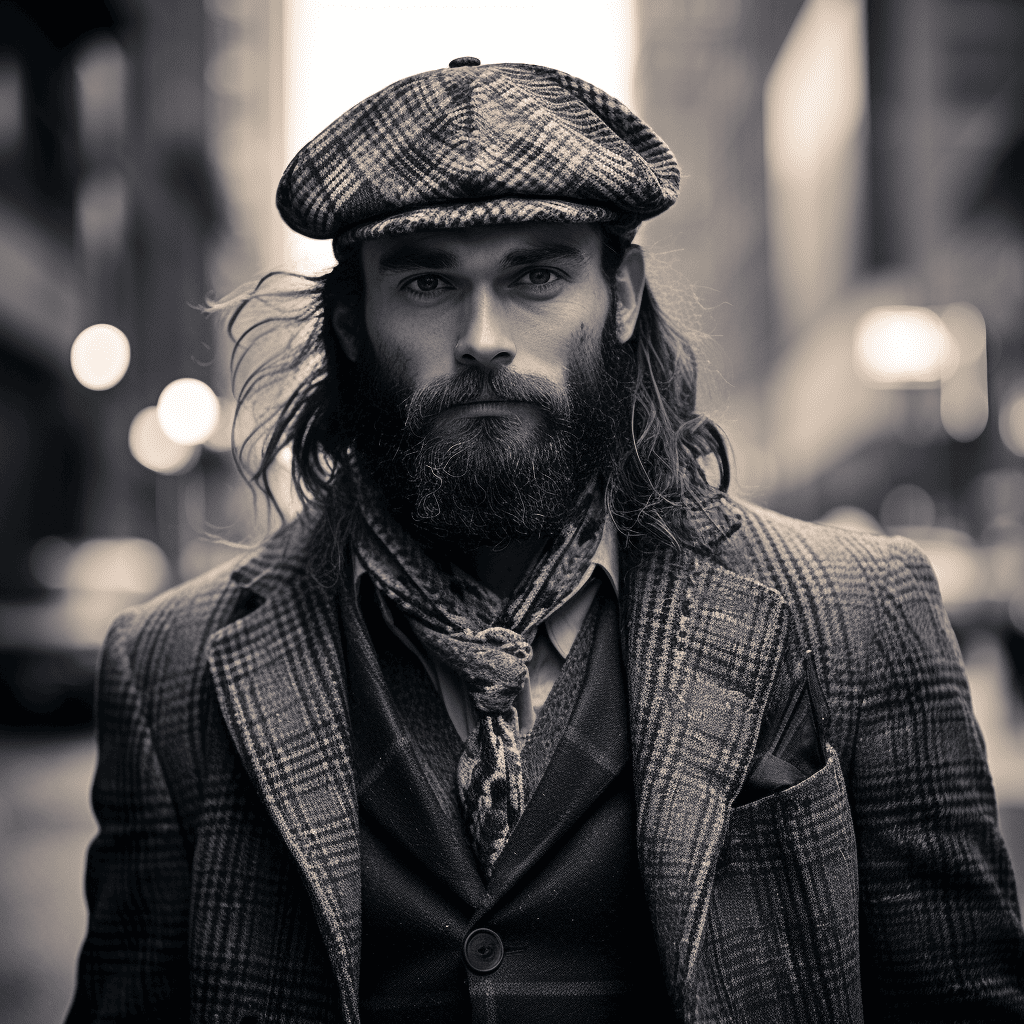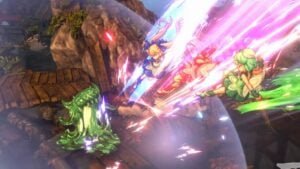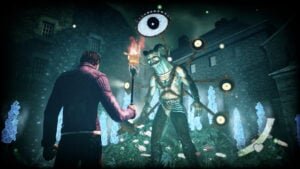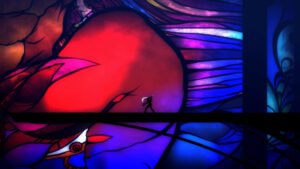The Last of Us is a series about choice and darkness.
From the studio that brought us Nathan Drake, it was a change of pace, a game that pushed the limits on what narrative in games could look like. Exploring the true horror people will put each other though in order to survive. While it was a game about sacrifice and struggle, it was also one filled with hope things can be better.
Now with The Last of Us Part II finally here, we took some time to jump on a call with Halley Gross, Co-Writer for the game. Diving into the topics of darkness, narrative and character, Halley Gross gives some insightful ideas and gives a glimpse of how game studios and the collaborative teams bring a new depth to the act of storytelling.
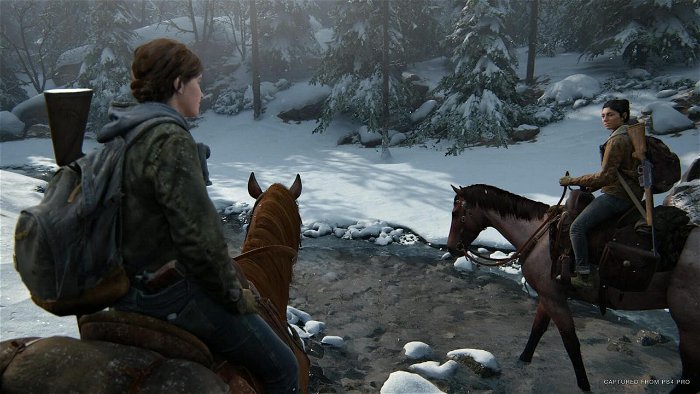
CGMagazine: First things first I want to just quickly discuss what brought you to this project?
Halley Gross: The backstory to it is I just come off of Westworld and I got a call from my agent who was like, “Hey, would you ever have any interest in working in video games, Neil Druckman would like to meet with you.” And what I didn’t know was that my agent had sent a stack of scripts as recommendations to Neil and Neil had picked mine out of the group and liked what I’d written and wanted to sit down with me for the Last of Us Part II. What my agent didn’t know was at that point I was deep down a Skyrim hole. I was having a great time. and I was raised on video games, my mom got me a Game Gear to bribe me to stop sucking my thumb at seven years old. So I just wrote back absolutely in all caps, and then I sat down with Neil and he pitched me on the tent poles of the story and an ending — which is different than the ending you’ll experience — along with a few beats in the middle and I was so taken aback by what he wanted to do with the story.
I was a fan of the first game, I loved Ellie, I loved how punky and resilient she was. So the opportunity to get to extend her narrative, and to get to be part of her becoming a young woman was something that couldn’t pass up. In terms of what I’ve contributed, Neil, and I immediately got to work breaking out this story. So we took the tent poles that he cared about, and then we built out the connective tissue. We knew we had some of the central characters, but this world needed to get explored and really help illustrate this theme of the cycle of violence and the resiliency of the people in this world. I think he and I really put our heads together in building out this whole story, and then from that point on, I took on more responsibility in helping make sure that that narrative, the tone, the tension, the character of evolutions, could be hidden in all the different departments. I did my best to facilitate in any way I could with any department that needed or wanted narrative support.
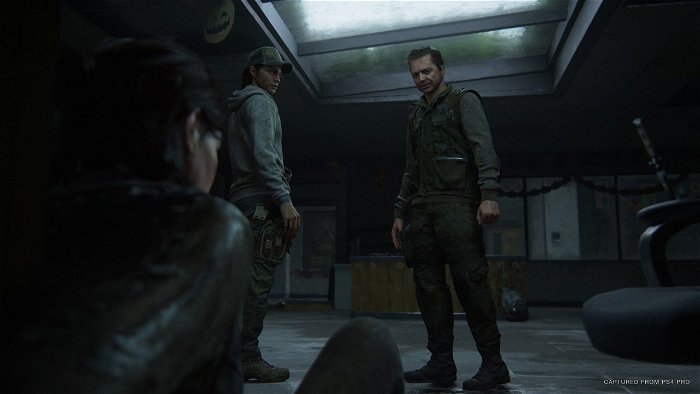
CGMagazine: You have a background in TV and short film, how was working on a video game compared to working within that different system?
Halley Gross: Working in film and TV is like playing Call of Duty and working in games is like going to war. It’s a radical change because in Hollywood, you write a script, usually with other writers on a team, and when you finish you hand it off to other departments. The art department develops it, casting works on it, the directors work on it, but it’s all based on semi locked piece of material. Whereas with The Last of Us Part II, Neil and I developed this outline, but very quickly, we brought in designers, animators, programmers, artists, to help bring it to life and evolve it. It was this growing living thing. It continued to change, over the course of many years. I think we didn’t change the ending until about two years ago. So much of my day was spent working with people in other mediums, or other departments, collaborating with animators, collaborating with artists. It’s very much that you’re constantly in the trenches and constantly trying to change, tweak and improve. If you like collaboration, there’s no place better than working in video games.
CGMagazine: Games often have an issue with narrative dissonance, with the player often acting in a way that is counter to how the protagonist is written. How did you deal with this in The Last of Us Part II, and do you view it as a problem?
Halley Gross: We very much wanted to get you in alignment with Ellie as soon as we possibly could. We wanted you to feel the tension she feels in every beat, feel that fear. This is a hostile world and we wanted you to be immersed in that so in terms of layout In terms of audio design, we did what we could to give you that sense of fear, the tension, unease, and danger.
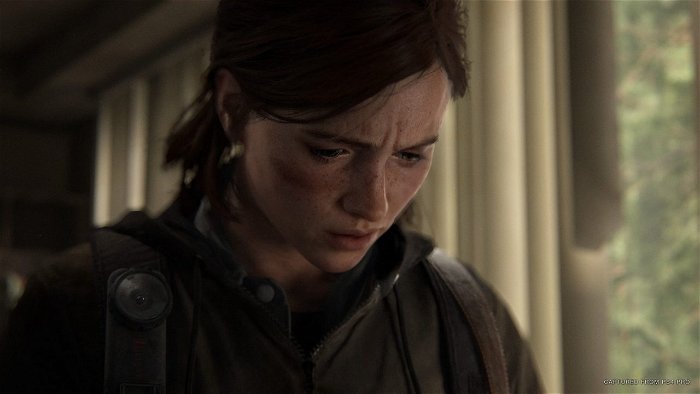
We also worked hard to humanize the NPCs as best we could so that if you are to kill one of them, they all have names, their friends will call out for them or mourn over their loss and their dogs will cry over their bodies. We wanted every decision that you make with Ellie to feel challenging. As much as we care very much about giving players choice, we want you to enter any setup and get to play it the way that you like to play it. Be it stealth, be it more combative, you have that choice, but ultimately this world should help articulate and further that sense of hard choices being made. This girl has to make on a day to day, moment to moment basis.
CGMagazine: The characters within the Last of Us universe often exist in a morally ambiguous area, where it is hard to know what is right or wrong. With Part II, was there anything you felt was too far to take them, and if so, where did you draw that line?
Halley Gross: Our focus was the authenticity of character first and foremost. So I don’t think it was thinking about what’s too far. It’s more about what’s too far for that character and where are their emotional lines. So much of this game is about where are people’s minds, what satisfies their soul, and who are they after they make these big decisions. For me, it was incredibly exciting. I love the idea of the morally grey and as you play this game, you’ll see, none of the characters are explicitly good or bad, evil or heroic. They all do both, and we don’t want to be prescriptive on how people view them. Some people are going to be on board with Ellie’s decisions the whole time, some people are going to find them challenging. Hopefully, what you’ll come away with is seeing that Ellie made the decisions that were authentic to who she was, and to the world, she lives in. Hopefully, they feel we are being authentic to who she is and her value sets. We’re going to watch these values evolve as the story progresses because stories are about change.
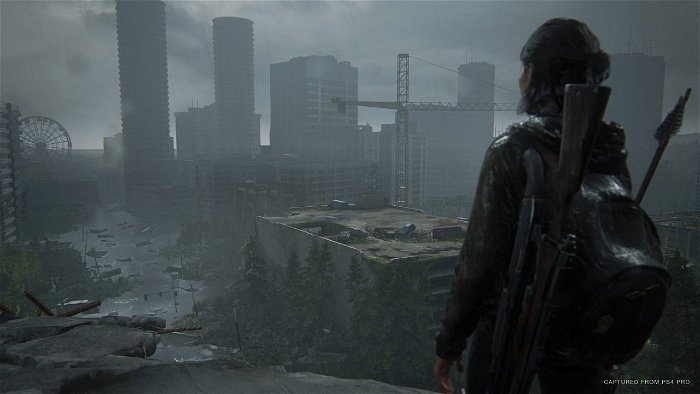
CGMagazine: Anything you want to expand on that I might not have touched on that you believe people should know as they walk into The Last of Us Part II?
Halley Gross: The story is intended to be challenging. We want people to be asking questions of themselves. We want people to be debating. Were the decision some of these characters made right or wrong? Is there a right or wrong or is that entirely based on perspective? We hope that people walk away, looking at the world a little bit differently. This world is harsh, but our characters are inherently resilient people. And I would say one of the things I find most inspiring about this game, that becomes clear as you progress through it, is that our characters are going to make mistakes, they’re going to make destructive choices, the world is going to encroach on them and hurt them.
That being said, Every moment our characters have an opportunity to make a more productive choice. And they can look toward the past or they can look toward the future. This game as much as we’ve said is a game about hate, is also a game about empathy, about hope, about redemption. So much of the first game was focused on a man who’d lost so much, who’d done so much dark stuff in his life and we mostly hear about it, we only see some a little bit of it and through his love of this girl through his willingness to sacrifice.
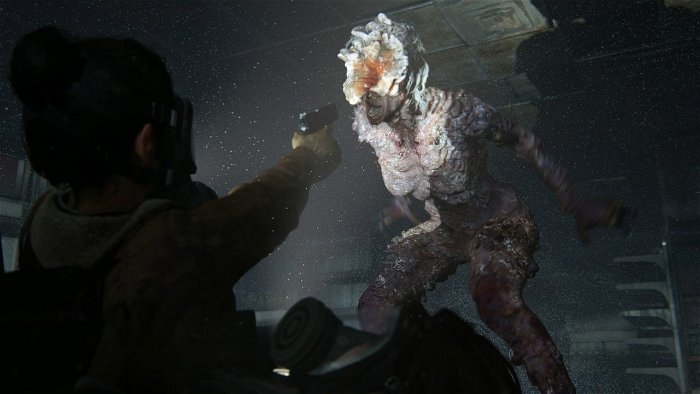
Whether he redeems himself enough, that’s really up for debate. But he’s able to make an impactful choice and change this girl’s life forever, in a positive albeit complicated way. We want to examine that, we want to expand on that, we want to talk about the cycle of violence and we want to focus on resiliency, we want to focus on redemption. This is a game that as much as it’s about hate, it’s also about redemption.
To read the full interview, check out CGMagazine Issue #40
